"United Nations Convention on International Settlement Agreements Resulting from Mediation" (also known as the "Singapore Convention on Mediation", the "Convention") is an unprecedented international convention named after Singapore, the city state well-known for its prosperity and commercial efficiency. The Convention has been opened for signature since its signing ceremony on 7 August 2019, during which 46 countries including Singapore, China and the United States have put their pen to paper.
This article explains the nature and the functions of the Convention and some concepts related to the Convention.
Mediation under the Convention
Mediation is a non-adversarial method of dispute resolution with the help of a neutral third party.
Dispute methods of dispute resolutions may be put into two broad categories:
- Adversarial Dispute Resolution. In adversarial dispute resolution, parties often advocate passionately for their rights based on "events in the past". Adversarial dispute resolution usually leads to severe deterioration of the relationship between the parties. Examples of adversarial dispute resolution include litigation, arbitration, adjudication, complaint and appeal.
- Non-adversarial Dispute Resolution. In non-adversarial dispute resolution, parties would attempt to reach an agreement in a voluntary and amicable manner to settle the conflicts and disputes between them. Examples of non-adversarial dispute resolution include mediation, negotiation, consultation, conciliation, and neutral evaluation.
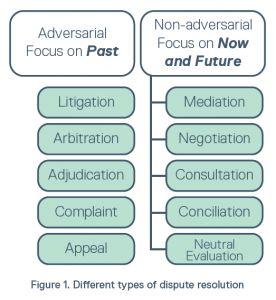
Article 2 of the Convention stipulates that "Mediation" means a process, irrespective of the expression used or the basis upon which the process is carried out, whereby parties attempt to reach an amicable settlement of their dispute with the assistance of a third person or persons ("the mediator"). Occasionally disputants may be represented by Mediation advocate to attend and facilitate in the mediation.
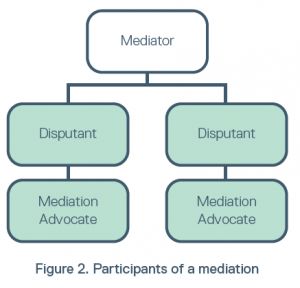
In practice, a typical mediation has the following three features:
- Confidentiality. Mediation would require parties as well as the mediator(s) to keep the fact that the parties are conducting the mediation as well as any communications for and during the mediation confidential. Often the parties would also require that the contents of the settlement agreement made via a mediation be kept confidential.
- Without Prejudice. Mediation usually requires that any statement made by any party during a mediation will not be used as evidence against the maker of the statement in adversarial dispute resolution proceedings (such as litigation and arbitration) so as not to cause any negative impact (hence "prejudice") on the same party. For example, if one party admits during a mediation that she owes a certain amount of money to the other party, the other party cannot provide evidence to the court to show that the first party has made such admission during the mediation.
- Voluntary. Parties need to voluntarily participate in a mediation with good faith and voluntarily enter into a settlement agreement if they wish. "Good faith" means that parties need to attend the mediation with an intention to attempt to settle the disputes honestly instead of trying to achieve some collateral purposes through mediation.
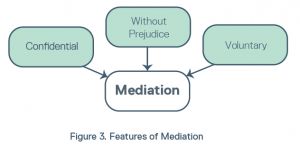
The Convention requires the mediator to be neutral, independent and impartial throughout the mediation. The mediator needs to not only be substantially neutral, independent and impartial, but also eliminate any reasonable doubt on appearance by the disputants as to his or her neutrality, independence and impartiality. It is also noteworthy that Article 2 of the Convention provides that the mediator has no authority to impose a solution upon the parties to the dispute.
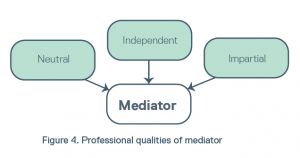
The convention does not stipulate any particular form of which a mediation should be conducted. However in practice, a typical mediation would follow the structure as shown below:
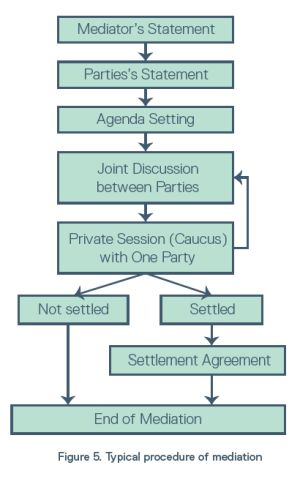
Functions of the Convention
By signing the Convention, signatories agree to pass laws and regulations to enforce a settlement agreement in accordance with its rules of procedure and under the conditions laid down in this Convention. This means that settlement agreements made after properly conducted mediations in accordance with the Convention (if applicable) may be enforced in those jurisdictions.
For the avoidance of doubt, however, not all settlements agreements via mediation will definitely be enforced. A signatory state may refuse to enforce a settlement agreement in accordance with Article 5 of the Conventions. The main grounds of refusal include:
- A party to the settlement agreement was under some incapacity;
- The settlement agreement sought to be relied upon is null and void;
- The settlement agreement sought to be relied upon is not final or binding on the parties, or has since been modified;
- The settlement agreement has been fully performed or is not comprehensible;
- There was a serious breach by the mediator or the mediator fails to maintain impartiality or independence;
- Granting relief would be contrary to the public policy of that party; and
- The subject matter of the dispute is not capable of settlement by mediation under the law of that party.
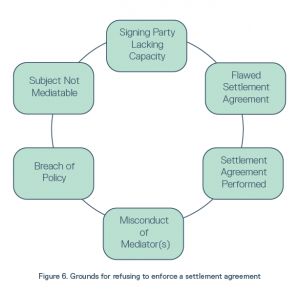
Applicability of the Convention
One should also take note that the Convention only applies to Commercial disputes. The Convention expressly excludes disputes involving transactions for personal or family purposes (that is, consumer disputes). Matrimonial, Probate and Labour disputes are also excluded.
The Convention only applies to International disputes. To be qualified as an international dispute, the following condition(s) need to be satisfied at the time when parties signed the settlement agreement:
- At least two parties to the settlement agreement have their places of business in different states; or
- The state in which the parties to the
settlement agreement have their places of business is different
from either:
- The state in which a substantial part of the obligations under the settlement agreement is performed; or
- The state with which the subject matter of the settlement agreement is most closely connected.
The Convention only applies to a settlement agreement in Writing. The requirement that a settlement agreement be in writing can be met by an electronic record if the content therein is accessible so as to be useable for subsequent reference.
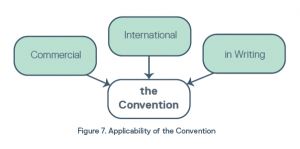
The Convention is not applicable under the following circumstances:
- A settlement agreement not concluded via a mediation;
- A settlement agreement approved by the court or concluded during the court proceedings, and is enforceable as a judgment of the court; and
- Settlement agreements that have been recorded and are enforceable as an arbitral award.
The following table summarises the possible methods of enforcement of a concluded settlement agreement:
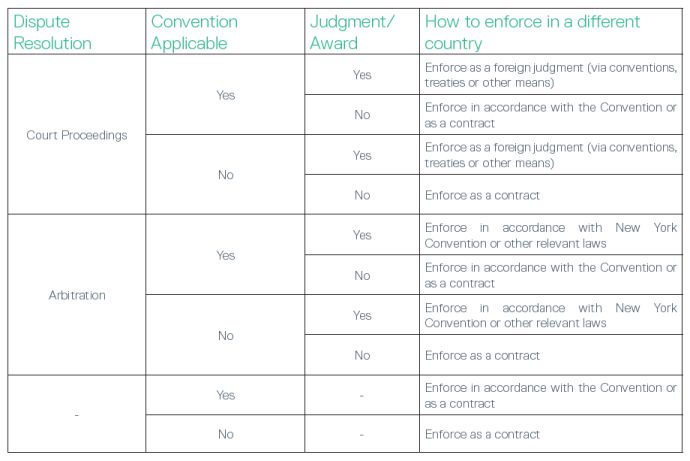
Conclusion
Since the Convention will come into force 6 months after more than three signatories ratify or approves the Convention, we all now await for it to become in force in the early 2020. The Convention provides an alternative means to enforce a settlement agreement that is concluded via mediation, promoting mediation as a means to resolve cross-border commercial disputes amicably in this globalised world. Commercial parties should seek legal advice on how to protect their interests under the Convention.
Click here to download the article and here for the Chinese version.
Published: August 28, 2019
The content of this article is intended to provide a general guide to the subject matter. Specialist advice should be sought about your specific circumstances.
